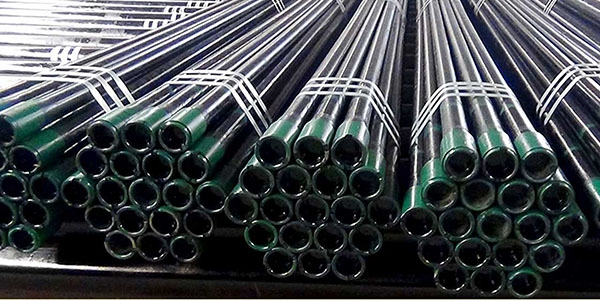Nowadays, oil well pipes occupy an important position in the petroleum industry, and their safety, reliability, service life and economy have an extremely significant impact on the petroleum industry. Oil well pipes mainly include casing, tubing and drill string components (drill pipe, drill collars, couplings, etc). This article will talk about how to choose qualified oil well pipe.

How to Choose Qualified Oil Well Pipe?
- Understand Well Conditions:
Gather information about the well, including its depth, temperature, pressure, and the type of fluids it will encounter. The conditions within the well will heavily influence the choice of pipe material and specifications.
- Adhere to Industry Standards:
Ensure that the pipe selected meets the relevant industry standards, such as those provided by the American Petroleum Institute (API). For casing, API 5CT, and for tubing, API 5L, are commonly referenced standards.
- Material Selection:
Choose the appropriate material based on the well conditions. Common materials for oil well pipes include carbon steel, alloy steel, and stainless steel. The material's grade should be selected according to its mechanical properties, corrosion resistance, and temperature suitability.
- Size and Wall Thickness:
Select the pipe size and wall thickness that can handle the anticipated pressure and the corrosive environment, considering factors like the depth of the well and the weight of the fluid column.
- Connection Type:
Choose the appropriate connection type for the pipe ends, such as threaded and coupled, integral joint, or premium connections. The choice depends on the well design, anticipated loads, and the need for sealing and integrity.
- Consider API Ratings:
Look for API-certified pipes that are specifically designed for oil and gas well applications. API-certified pipes have undergone rigorous testing and meet strict quality and performance requirements.
- Safety Factors:
Apply safety factors to the pressure ratings to ensure the pipe's reliability and safety. These factors account for uncertainties, variations in operating conditions, and potential downhole challenges.
- Assess Corrosion and Wear:
Evaluate the potential for corrosion and wear within the well, and select pipe coatings or materials that can withstand these challenges. Protective coatings and lining may be necessary in corrosive environments.
- Budget Considerations:
Balance the need for high-quality pipe with budget constraints. It's essential to ensure that cost-effective options meet the necessary standards and can perform adequately in the specific well conditions.
Choosing qualified oil well pipe is crucial for ensuring the integrity and safety of oil and gas well operations. The selection process involves considering various factors, including the specific well conditions, industry standards, and the material properties of the pipe. If you have any other questions, please contact:sales@union-steels.com

 English
English Español
Español




 Tel : +86-18565811709
Tel : +86-18565811709 Email :
Email : 

 News
News




